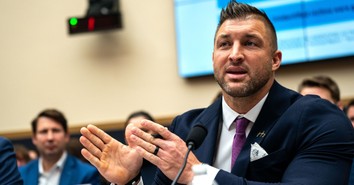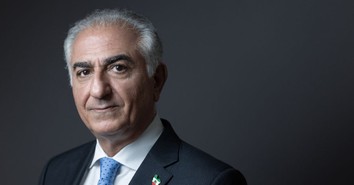New Study Reveals Most Pastors Avoid Professional Support, Highlighting Lingering Stigma

A new study revealing that most pastors rarely seek professional support highlights an ongoing stigma around getting help -- and the need to make pastors feel more comfortable doing so, says Brad Hill, Chief Solutions Officer at Gloo.
The data from the Barna State of the Church research, in partnership with Gloo, found that 52 percent of pastors do not currently use professional guidance, such as mentors, coaches, advisers, and counselors, to support them in ministry.
The numbers are even lower when it comes to mental health support: Only 12 percent have seen a therapist, 9 percent a professional counselor, and 3 percent a marriage counselor.
Sometimes, Hill said, pastors do not feel comfortable getting help.
"I've served on elder boards and in governance roles, and I really, really would love to see us better normalize the idea that -- [it] turns out your pastor is a human being and needs support," Hill told Crosswalk Headlines.
It's essential, Hill said, that church leaders and members realize that pastors "have the same kind of struggles and the same kind of journeys that all of us do." Hill said churches can play a key role in removing the stigma by taking the initiative to create space for pastors to seek help -- while putting in structures to ensure confidentiality.
Hill recommends bringing in a neutral third party and establishing clear confidentiality policies to ensure the pastor's trust and privacy are protected.
"I think, having the foresight to put those structures in place so the board can confidently say, 'We don't get any reports from this. This is between you and that individual, but we want you to have this because we want you and need you to be a healthy leader' -- I think that's a really strong model that I've seen done in a few but not enough churches."
Meanwhile, the data found that while nearly 7 out of 10 pastors (69 percent) are satisfied with their job security, roughly half express the same level of satisfaction with their income level compared to their family's needs.
While 64 percent of pastors express some level of confidence about retiring when they choose, only 20 percent are "completely confident," and more than one-third (36 percent) say they are either "not confident" or uncertain about the timing of their retirement, the Barna/Gloo data says.
Today, 56 percent of pastors say they feel more confident in their calling than when they first began ministry -- the highest level reported since before the COVID-19 pandemic. Additionally, 93 percent say they are at least somewhat satisfied with their job.
The average pastor is 52 years old.
Photo Credit: ©GettyImages/fizkes
Michael Foust has covered the intersection of faith and news for 20 years. His stories have appeared in Baptist Press, Christianity Today, The Christian Post, the Leaf-Chronicle, the Toronto Star and the Knoxville News-Sentinel.
Listen to Michael's Podcast! He is the host of Crosswalk Talk, a podcast where he talks with Christian movie stars, musicians, directors, and more. Hear how famous Christian figures keep their faith a priority in Hollywood and discover the best Christian movies, books, television, and other entertainment. You can find Crosswalk Talk on LifeAudio.com, or subscribe on Apple or Spotify so you never miss an interview that will be sure to encourage your faith.
Originally published July 15, 2025.








